The six pou of Mata Ārahi Manomano drive the questions we have used to profile Māori & Pacific role models, like Leilani, in the Service sector.
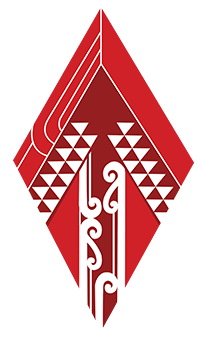
|
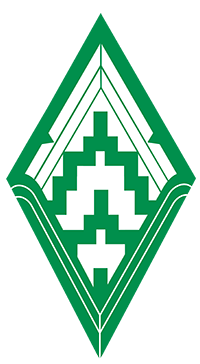
|
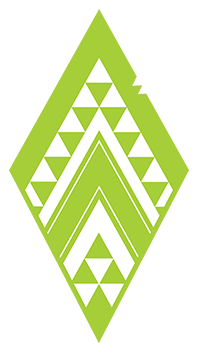
|
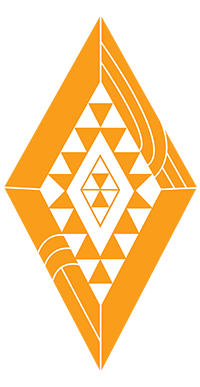
|
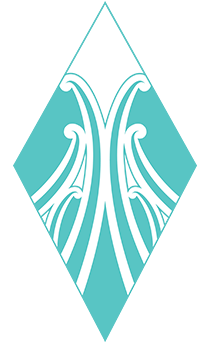
|
|

Representing the levels and forms of aroha that can be found throughout our lives across our many communities. We acknowledge the wide range of obstacles and the journey it takes to overcoming everything that stands in our way to expressing aroha within.
I was born here and moved to Samoa, where I did my schooling, then returned to New Zealand and went to university, earning a Bachelor of Computing Systems. I’ve had good exposure to my Māori and Samoan cultures.
I am a Tribal Lead for an insurance company, sitting at the executive table. I’ve got three kids, and I’ve recently become a solo mum. When I stepped into insurance, I thought oh no, this is too square for me. But here I am 10 years later, having moved my way through the organisation.
I wanted to end up as a software engineer or a technical engineer and started off in frontline service desks. But my colleague Danny got me into leadership; he was moving to Australia and said I should take over his role. I’ve had to learn to acknowledge my strengths because I can see the strengths in heaps of other people.
I’ve succeeded by being myself. I love helping people reach their potential; every job I do is about seeing others go forward or to be who they want to be. People see me as someone they can relate to.
Going into leadership I believed in others more than I believed in myself. That was the beginning of my path of leadership, and then I think I found myself.

Seeking guidance from our kaitiaki Hiwa-i-te-rangi, we take a journey through our different aspirations, goals and dreams. This tohu acknowledges hard work, wisdom, the reach of ones goals and the desire that comes from this mahi.
I’m recognising that coming from two minority cultures and being in the corporate world – where we are very much a minority, particularly where I am – that there’s a deeper purpose: to lead and inspire the Pacific Peoples and multi-cultural workforce. I feel like I’ll do that just by being in those positions, but also, I’m wanting to take more intentional action to support those in the workspace, to show that if I can do it, anybody can.
I didn’t come from a rich family. I’m not a specialist in anything. I think a lot of people think, particularly in insurance, you have to have deep knowledge to be respected. But for me I’m showing them you can just be yourself and have strong purpose around where you’re going, and if you lead with intent and authenticity it’ll take you places. But you’ve gotta back yourself. And that’s something I’ve had to learn.

With adventure comes challenges as well as obstacles to overcome. We stand proud as we overcome these obstacles. This tohu draws inspiration from the Niho Taniwha and Aramoana patterns. We acknowledge reaching our destination and preparing ourselves for the many new adventures ahead.
Technology has been a constant as an underlying thing streaming through, but I recognise I don’t have to be the one that’s in the technology space doing the doing. I can impact change at a broader level. But it’s great to know the technology so people can’t pull the wool over your eyes.
A lot of organisations are trying to hold the line on costs, which means you’re always looking to where you can generate efficiencies. I’m interested in how we can do things quicker, smarter, empowering others to do more. That it’s actually within their skill sets, so how do we automate that?
I love technology, but with the lens around process and people and improving the way we do things. But I’m open to new things that might seem scary to others, like generative AI. Many people say it’s going to take our jobs, but if you’re using it to get rid of mundane and repetitive stuff, imagine what space it’s gonna create to do more innovative things.

These patterns represent bravery and being strong in the face of adversity. We strive to be persistent and positively challenge anything that threatens to alter, restrict, and put a barrier in the way of our desired pathway.
I have this attitude of ‘let’s try it’. I think that’s worked in my favour. If it doesn’t work, let’s do something different, feel the fear and do it anyway.
There’s been many moments in my career where someone will say ‘I think you should go for this role’ and I’ll say ‘that’s not for me’. But then I think, what’s the worst that could happen? It’s like, go with it and see where it flows. I found that when I do that, it’s actually worked out for me.
I have a lot of self-limiting beliefs and I know that is felt by a lot of Pacific Peoples and Māori. I’m generalising here, it’s not everyone, but that comes from our cultural upbringing. That translates into the corporate world and you don’t even realise it. Actually, we are very vocal people. We solve problems together culturally.
Sometimes the right decisions are the scary ones. I often ask myself, is this a limiting belief that is stopping me or do I move with it? And I think if I didn’t, I wouldn’t have progressed in my career. I would have just sat there being comfortable.

Here we are drawing inspiration from the Pūhoro pattern. The pūhoro is used here to represent the strength, speed and agility needed to move forward and accomplish ones goals.
I think it goes back to fully embracing who you are and to be your authentic self in the workplace. I know that can sound cliche, but I truly live and breathe it – who I am at work is who I am outside of work.
When people realise I’m an executive manager they say I don’t fit the mould. How beautiful is that? I don’t wanna fit the mould, because I’m representing the minority.
The beauty of coming from our cultural backgrounds is that we’re always gonna have diversity of thought. Do not underestimate this and how you can bring that in, because these corporate organisations need to get up to play. Look at all the Treaty gift backs that are happening, getting that money back from government.
Culturally, we solve loads of problems. We do it, collectively. It’s innate in us. Whereas in the corporate world I think many feel like it’s very like isolated. And this is the beauty of our people as we kind of come in and go – how do we do this together?
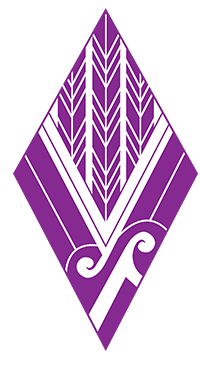
Success, best mentioned in the whakatauki “Tūwhitia te hopo, mairangatia te angitū!” Feel the fear and do it anyway!
My entrenched self-limiting beliefs are a personal challenge, and I’m still overcoming those. I also had burnout last year, because I was in an environment that clashed with my values. That was a huge challenge that I saw as a breakthrough. It sent me on this path of having more inner confidence. It’s opening up the conversation for others to talk about burnout and mental health.
I’ve always found that when something happens in my personal life, my career moves forward. When a relationship of six years ended, I got asked to run the first Trans-Tasman June, Gen-i NOC for New Zealand. It helped make me focus and get it done. It’s been a recurring theme through my career.
The other challenge for me has been work-life balance, because we are whole people, we’re not just work. I once got to a point where I was trying to do it all. And then, you get burned out. I found I don’t need to seek validation by saying yes to everything.
I’m not one of those people who know what they’re gonna do and what their next role is, and I always felt that was something that was wrong with me. But I’ve realised now that I use my intuition and gut a lot more. I’m following my path and I’m trusting that things will open up in the right time and space.